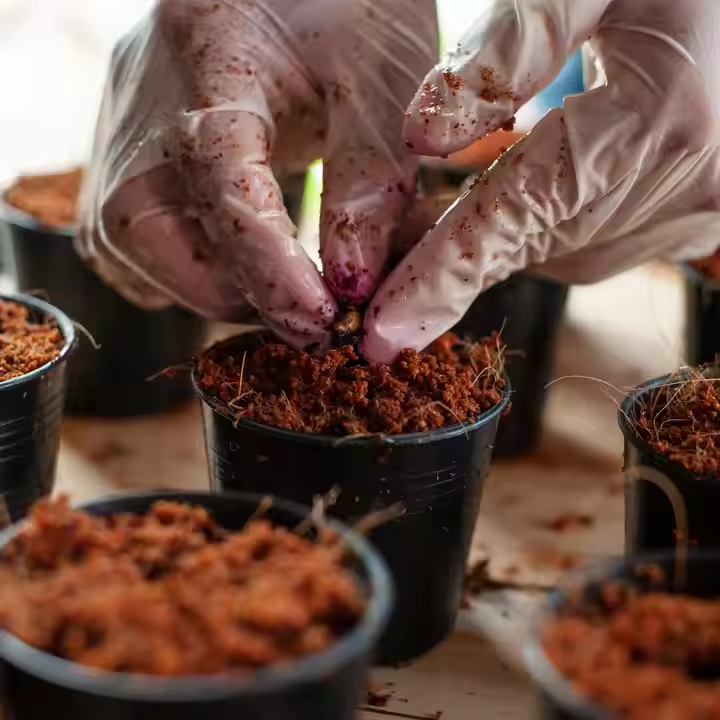Cocopeat Blocks: An Eco-Friendly Solution for Soil-Free Cultivation

Cocopeat, also known as coir pith or coconut coir, is a natural, eco-friendly growing medium made from the fibrous material found in coconut husks. It is lightweight, porous, and highly absorbent, making it an ideal alternative to traditional soil and peat moss. Cocopeat is widely used in horticulture and agriculture for seed germination, potting mixes, hydroponics, and more, thanks to its excellent moisture retention and aeration properties.
To produce cocopeat blocks, coconut husks are soaked, mechanically processed to extract coir fibers, and the remaining pith is washed to remove salts and impurities. This coir pith is then dried and compressed into compact blocks. When soaked in water, these blocks expand several times their original volume, creating a soft, spongy substrate ready for planting.
Cocopeat blocks offer numerous benefits: they improve soil structure, promote healthy root development, and maintain consistent moisture levels. With a near-neutral pH and high cation exchange capacity (CEC), they hold and release nutrients efficiently. Additionally, cocopeat is naturally resistant to pests and diseases, biodegradable, and a renewable resource, making it a sustainable choice for organic farming, landscaping, and indoor gardening.

How to Use Cocopeat
- Hydrate the Block: Place the compressed cocopeat block in a large container or bucket. Add 3–5 liters of water per kilogram of cocopeat and let it sit for 15–30 minutes until it fully expands.
- Break Apart: Once expanded, fluff the material using your hands or a garden tool to create a loose, airy texture.
- Mix or Use Alone: Use cocopeat on its own or mix it with soil, compost, or other growing media like perlite or vermiculite for better results.
- Fill Containers: Add the prepared cocopeat mix to pots, trays, or beds for seed starting, planting, or transplanting.
- Water and Maintain: Cocopeat retains water well, so monitor moisture levels and water less frequently than traditional soil. Reuse by drying and storing it after each crop cycle.
Benefits of Cocopeat
Excellent Water Retention: Cocopeat holds moisture effectively, reducing the need for frequent watering.
Improves Soil Aeration: Its porous structure enhances air circulation around plant roots, promoting healthy growth.
Supports Root Development: The soft, spongy texture encourages strong and healthy root systems.
Neutral pH Level: With a near-neutral pH, cocopeat suits most plants and balances soil conditions.
High Cation Exchange Capacity (CEC): It holds nutrients and releases them to plant roots as needed.
Biodegradable and Renewable: Made from coconut waste, cocopeat is eco-friendly and fully compostable.
Pest and Disease Resistant: Naturally resistant to harmful pathogens, reducing the need for chemical treatments.
Reusable: After use, cocopeat can be dried, rehydrated, and reused multiple times.
Lightweight: Easier to handle and transport compared to soil or other growing mediums.




